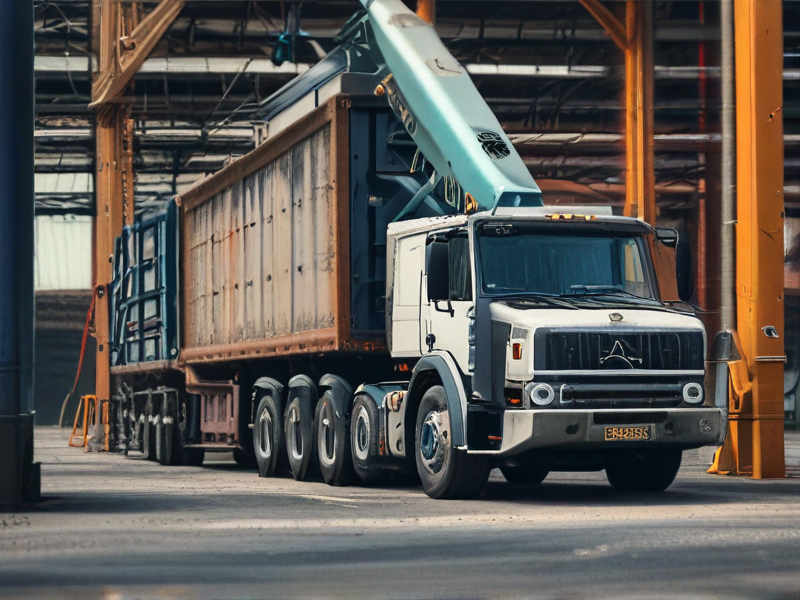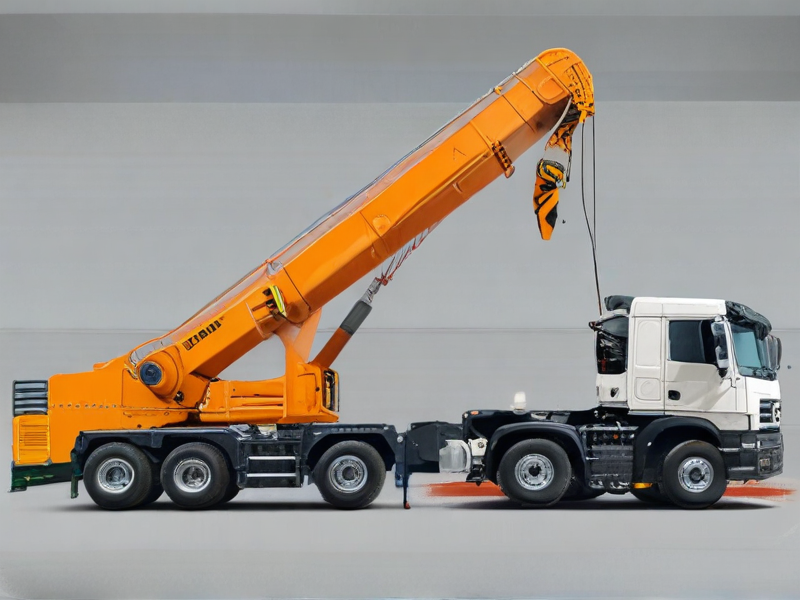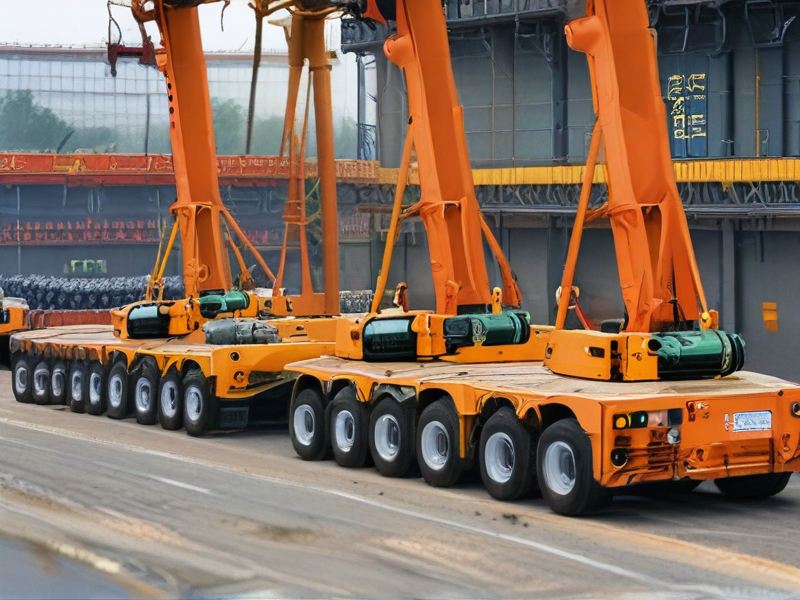An In-Depth Analysis of Manufacturing Expenses for crane truck hire cost
The manufacturing expenses associated with crane truck hire costs are multifaceted, encompassing several key components that ultimately determine the final pricing for end-users. These components can be broadly categorized into direct material costs, direct labor costs, indirect costs, and overheads.
1. Direct Material Costs:
The core materials used in the fabrication of crane trucks include steel for the chassis, engine components, hydraulic systems, and electronic modules. The cost of raw materials can fluctuate based on market prices, availability, and supplier terms. Advanced materials and technology integration, such as sensors for load monitoring and telematics, add to the expenses.
2. Direct Labor Costs:
Skilled labor is essential for the assembly, welding, and installation of crane mechanisms. Labor costs vary depending on the complexity of the design and the expertise required. High precision in manufacturing and rigorous quality control checks also necessitate specialized labor.
3. Indirect Costs:
These include costs not directly attributed to manufacturing but essential for the production process. Expenses such as utilities (electricity, water, and gas), transportation of materials, and maintenance of machinery fall into this category. Efficient logistics and advanced inventory management systems can optimize these costs.
4. Overheads:
Overhead expenses cover administrative, marketing, and R&D activities that support manufacturing. Engineering design, prototyping, and continuous innovation are necessary to meet evolving market demands. Moreover, compliance with safety regulations and standards (like ISO certifications) incurs additional compliance costs.
Depreciation and Amortization:
Capital investments in manufacturing facilities and equipment are amortized over their useful lives. Depreciation constitutes a significant portion of manufacturing expenses, impacting the cost structure for crane truck production.
Economies of Scale and Efficiency:
Achieving economies of scale through mass production can reduce unit costs. Lean manufacturing techniques and automation enhance production efficiency and minimize waste, which is crucial in a competitive market.
In summary, the manufacturing expenses for crane truck hire costs are a complex interplay of material procurement, labor, indirect costs, and overheads. Effective management of these elements is crucial for setting competitive hire rates while ensuring profitability.

Understanding the Components that Contribute to the Price of crane truck hire cost
Several factors contribute to the cost of hiring a crane truck, each influencing the final price in different ways. Understanding these components can help you budget effectively and ensure you’re getting value for your money. Here are the key elements:
1. Type of Crane Truck: Different types of crane trucks (mobile, tower, telescopic, etc.) come with varying price points. The specific requirements of your job will dictate the type of crane needed, impacting the hire cost.
2. Lifting Capacity: The crane’s lifting capacity is a major determinant of cost. Heavier and more robust cranes capable of lifting greater weights will generally be more expensive to hire.
3. Duration of Hire: The length of time the crane is needed significantly affects the price. Short-term hires may have higher daily rates, while long-term rentals might offer discounts or lower daily rates.
4. Location and Accessibility: The geographic location of the job site can influence costs. Hard-to-reach areas or sites with limited accessibility may incur additional fees due to the complexities involved in transportation and setup.
5. Operator Costs: Hiring a qualified crane operator is often necessary and can add to the total cost. Skilled operators ensure safety and efficiency, which is crucial for the successful completion of the job.
6. Permits and Regulations: Depending on the location and nature of the job, you may need to secure permits and adhere to regulations. These can add to the overall cost, especially if special permissions are required.
7. Insurance: Comprehensive insurance coverage is essential to protect against accidents and damages. This can be an additional cost but is crucial for mitigating potential financial risks.
8. Additional Equipment: Sometimes, ancillary equipment like rigging gear, mats, or specialized attachments may be required, adding to the overall expense.
9. Transport and Setup: The cost of transporting the crane to and from the site, along with setup and teardown, will also factor into the final price.
Understanding these components allows you to better estimate crane truck hire costs and plan accordingly for your project needs.
Comparing the Wholesale and Retail Prices of crane truck hire cost in China
The cost of hiring crane trucks in China varies significantly between wholesale and retail prices, influenced by factors such as the type of crane, rental duration, and regional economic conditions.
Wholesale Prices:
Wholesale hiring typically involves renting multiple crane trucks or long-term contracts, often negotiated directly with manufacturers or large rental companies. These rentals are usually cost-effective, aiming to serve construction companies, factories, and large-scale enterprises. The average daily cost for wholesale crane truck hire in China ranges between ¥1,500 to ¥3,000 ($220 to $440) per day, reflecting the economies of scale and longer-term commitment.
Retail Prices:
Retail crane hire targets smaller construction firms and individuals who need crane services for short-term projects. These services are often provided by local rental agencies or through online platforms where hire agreements are on a per-day basis. Retail crane hire costs are notably higher, as these require maintenance, insurance, and logistics management on a more fragmented scale. Typically, retail prices range from ¥2,500 to ¥4,500 ($365 to $660) per day, depending on the truck’s capacity and the complexity of the job.
Factors Influencing Price Differences:
1. Volume and Duration: Wholesale agreements often include bulk rentals and extended durations, reducing the cost per unit.
2. Service and Support: Wholesale rentals may offer basic services, while retail rentals include comprehensive support, maintenance, and sometimes an operator, raising costs.
3. Market Dynamics: In bustling urban centers like Shanghai and Beijing, retail prices soar due to higher demand and operational costs, whereas wholesale rates might remain relatively stable due to contractual stability.
In summary, while wholesale crane truck hire in China is more cost-effective for large-scale, long-term projects, retail hire provides flexibility and full-service options at a higher daily rate, catering to smaller or short-term needs.

Understanding Shipping and Logistics for crane truck hire cost from China
Shipping and logistics for crane truck hire from China can be complex but understanding the basics can streamline the process and manage costs effectively.
1. Freight Options:
There are primarily two modes of shipping: sea freight and air freight. Sea freight is more economical for large, heavy equipment like crane trucks but takes longer (typically 20-30 days). Air freight is faster but significantly more expensive and often impractical for very heavy items.
2. Container Types:
A crane truck will likely need a flat rack or open-top container due to its size and weight. These specialized containers might incur higher shipping costs compared to standard containers.
3. Cost Components:
– Freight Costs: Based on weight, size, and shipping method.
– Customs Duties and Taxes: Vary by destination country and type of goods.
– Insurance: Protects against damage or loss during transit.
– Port Charges: Fees for handling and processing the shipment at the ports in China and the destination country.
– Inland Transportation: Costs for transporting the crane truck from the port to the final destination.
4. Documentation:
Essential documents include the Bill of Lading, Commercial Invoice, Packing List, and Certificate of Origin. Ensure all paperwork is correct to avoid delays and additional costs.
5. Freight Forwarders:
Utilizing a freight forwarder can simplify the process. They handle logistics, documentation, and coordination between shipping parties, ensuring compliance with international regulations.
6. Cost Management Tips:
– Consolidate Shipments: If possible, combine multiple items in one shipment.
– Plan Ahead: Book well in advance to secure better rates.
– Negotiate: Rates can vary, so shop around and negotiate with multiple carriers.
By understanding these key components, you can effectively manage the shipping and logistics for crane truck hire from China, ensuring timely and cost-efficient delivery.
Potential Tariffs or Import Taxes on crane truck hire cost Purchased from China
Importing crane trucks from China can involve several tariffs and taxes, significantly impacting overall costs. Here are key considerations:
1. Harmonized System (HS) Code: Identify the correct HS code for crane trucks to determine applicable tariffs. HS codes are internationally standardized but can have specific national variations.
2. Import Duty: Most countries impose an import duty based on the HS code. For example, the United States specifies a duty rate ranging from 2.5% to 25%, subject to various factors, including trade agreements and special tariffs.
3. Anti-Dumping Duties: Anti-dumping duties may apply if domestic industries claim that below-market-value imports are harming local businesses. These duties can be substantial and vary by country.
4. Value-Added Tax (VAT): Many countries, including those in the EU, charge VAT on imported goods. The rate can be anywhere from 5% to 25%, calculated on the total value, including shipping and insurance.
5. Customs Processing Fees: Various countries impose customs processing fees, which can be flat rates or a percentage of the total value.
6. Special Tariffs: Given the current geopolitical climate, some countries have imposed additional tariffs on Chinese goods. For example, Section 301 tariffs by the U.S. can add an extra 7.5% to 25%.
7. Documentation Costs: Ensure proper documentation, such as invoices, bills of lading, and certificates of origin, to avoid delays and additional costs.
8. Local Regulations and Standards: Compliance with local safety and emission standards may necessitate modifications, adding to the cost.
In summary, the total cost of importing crane trucks from China is influenced by a combination of import duty, VAT, anti-dumping duties, special tariffs, and compliance with local regulations. Careful planning and consultation with customs experts can help navigate these complexities.

Impact of Market Demand and Competitive Environment on crane truck hire cost
The cost of hiring crane trucks is significantly influenced by market demand and the competitive environment. When demand for crane trucks is high, such as during peak construction seasons or in regions experiencing a boom in infrastructure projects, rental prices tend to increase. This uptick in demand can lead to a scarcity of available units, allowing rental companies to charge premium rates. Conversely, during periods of lower demand, such as economic downturns or off-peak seasons, rental prices generally decrease as companies compete to utilize their fleets fully.
The competitive environment also plays a crucial role. In a market with many crane truck rental companies, competition drives prices down. Companies may offer competitive rates, additional services, or flexible rental terms to attract customers. Conversely, in an oligopolistic market with few players, rental prices can be higher due to limited options for consumers. The presence of substitute services, such as mobile cranes or other lifting equipment, can further influence crane truck rental rates by providing alternatives that can pressure companies to maintain competitive pricing.
Operational costs, including maintenance, fuel, and insurance, are also factored into rental prices. Market conditions that elevate these costs, such as fluctuations in fuel prices, can result in higher hire costs. Additionally, regulatory compliance and logistic complexities, especially in urban areas, can contribute to increased operational expenditures, affecting the final rental price.
In summary, the cost of hiring crane trucks is dynamically determined by the interplay of market demand and the competitive landscape, moderated by operational costs and availability. Companies must navigate these factors to provide competitive pricing while ensuring profitability. Understanding these variables can help both providers and consumers make informed decisions in the crane truck rental market.
FAQ about crane truck hire cost with Multiple Answers
FAQ About Crane Truck Hire Cost
Q: What factors influence the cost of hiring a crane truck?
A:
1. Type of Crane Truck: Different crane trucks have varying capabilities and, hence, different rental costs. For example, mobile cranes may cost more than simple truck-mounted cranes.
2. Duration of Hire: The longer you need the crane truck, the more it will cost. Some companies offer daily, weekly, or monthly rates.
3. Weight and Size of Load: Heavier and larger loads may require more specialized equipment, which can raise the cost.
4. Distance and Location: Transporting the crane to and from the site can add to the cost, especially if the site is in a remote area.
5. Operator Fees: Some crane hire services include an operator, while others charge extra for a qualified operator.
Q: How much does it generally cost to hire a crane truck?
A:
– Small Crane Trucks: Typically range from $100 to $300 per hour.
– Medium to Large Crane Trucks: Can range from $300 to $800 per hour.
– Long-term Rentals: Monthly rates can range from $3,000 to $15,000 depending on the type and size of the crane.
Q: Are there any additional fees I should be aware of?
A:
– Fuel Charges: Some companies charge extra for fuel.
– Permit Fees: If operating the crane requires special permits, those fees will be added.
– Overtime Charges: Additional costs may apply for work done outside regular hours.
– Insurance: Some companies require you to cover insurance costs, either through your own policy or by purchasing theirs.
Q: Do I need to provide any additional equipment?
A:
– Site Preparation: You may need to prepare the site or provide special equipment like lifting lugs.
– Support Crew: For complex jobs, additional crew members may be required, which can add to the overall cost.
Q: Can I get a discount?
A:
– Bulk Hire or Long-Term Contracts: Many companies offer discounts for bulk hires or long-term contracts.
– Loyalty Programs: Some businesses offer loyalty programs or return-customer discounts.
– Seasonal Offers: Look out for seasonal discounts or promotional offers.
Understanding the various factors and potential additional costs can help you budget better for hiring a crane truck. Always request a detailed quote to get a clear picture of the total cost.

